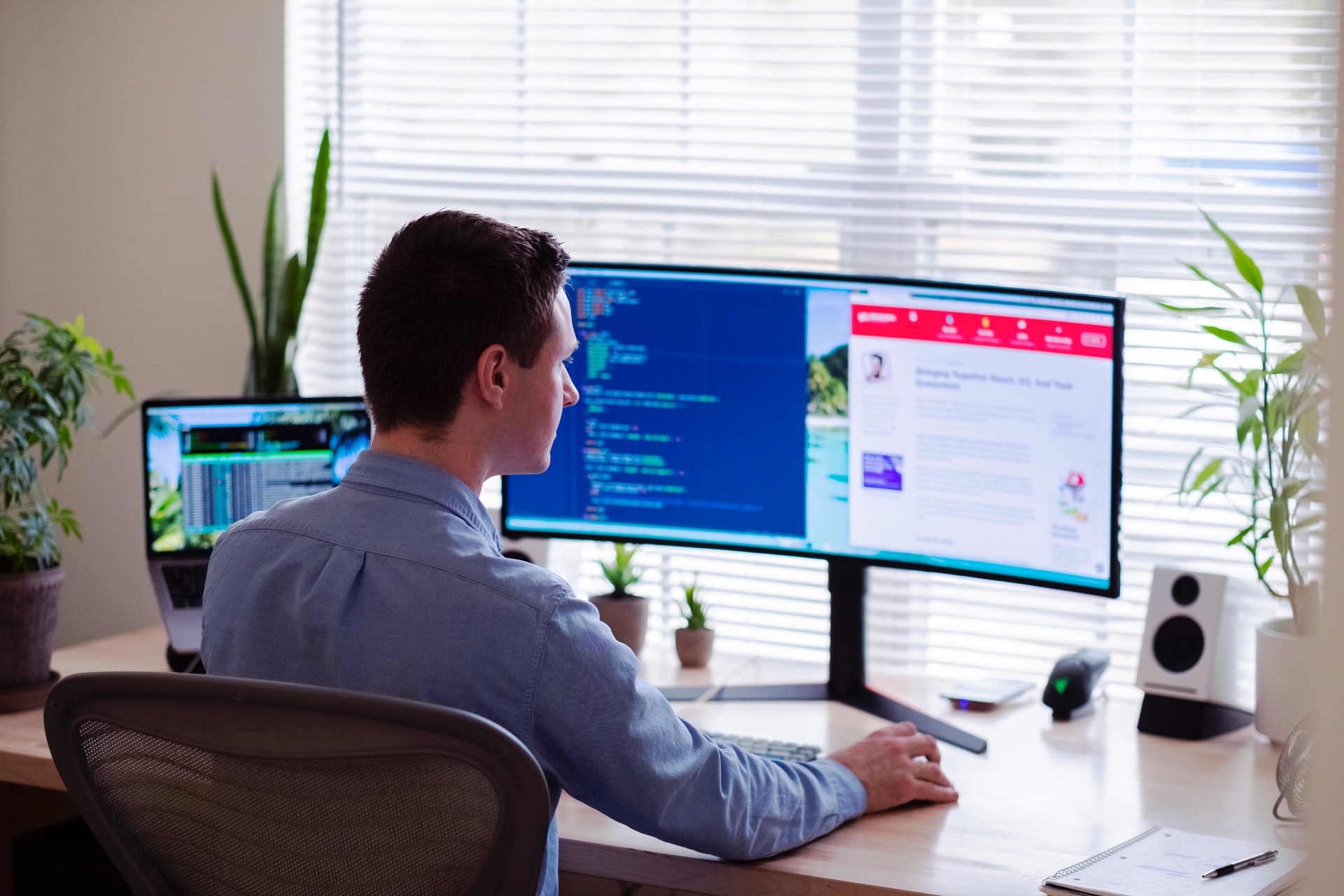When the pandemic hit in March of 2020, most companies were forced to go remote and millions of workers had to learn how to work from home. Two years later, a lot people now prefer the work from home option, and many job seekers are looking for remote-only companies to work for.
For software developers, there are many advantages to working from home and still effectively working as a team to produce high quality results. But how can you be successful in a remote company?
In this article, I will provide 7 tips on what it takes to be a successful developer in a remote company.
Communication is key
It is now more important than ever to communicate effectively with your team. Now that everyone is working from home instead of being in one physical office, you have to be very conscious to reach out to teammates and share your progress on a project. In a physical office, you are surrounded by other co-workers all day, which makes it easier to walk over to someone's office and share what you have been working on. It also makes it easier to have impromptu meetings with other team members throughout the day.
But in a remote setting, it is very easy to become isolated and get carried away with work without reaching out to anyone all day. This becomes an issue for your team, because now they are no longer keeping up to date on the latest changes you have been contributing to the project.
My tip would be to post periodic updates throughout the day of what you have been working on. If your company is using something like Slack or another chat server, make sure to post a detailed update on what you have been up to the past few hours.
Here is an example of one of the status updates I would post to my team.
Status update:
- finished making changes to xyz case study and put it up for review
- reviewed a couple of PRs
- ran accessibility audits for the homepage and working on increasing the performance score
I would usually post this in the middle of the day to update the team on what I have been working on. I also try to ask questions throughout the day to ensure that I don't get blocked on a particular issue for to long. This method of communication helps me stay connected with the team and helps my manager know where I am at in the project.
Find a separate space in your home just for work
When you are working in an office, there is a clear separation between work and home. This makes it easier to end your day and leave your work at the office. But with remote work, sometimes these lines between work and home become a little bit blurry. This is why it is important to designate a separate work space in your home.
In my situation, I have a small desk in another room where I do all of my work. That space is only used Monday through Friday for work purposes. I have found that by creating a work space, it allows me to be in the moment and fully concentrate on my duties. Then at the end of the day, I logout out of everything and leave the work space just like I would leave a physical business. That has given me freedom to relax in my home when I am not working and fully recharge for the next day.
I understand that everyone's living situation is different, and you might not have room for a designated work area. In those cases, do the best you can to carve out some space in your living situation just for work. The more you can do to separate home and business, the more productive you will be at work.
Set consistent work hours
When you are working in an office, you have set hours for when you are going to be there. It might be 9-5 or 8-3 with breaks throughout the day. But when you are working from home, it is very easy to work without a set schedule and put in more time outside of the standard work hours. This can quickly lead to burnout which is a huge issue within the developer community.
It is really important to set a consistent work schedule so your team knows when you are available, and when you are off work. This also forces you to work within a time frame which will lead to better focus, time management and productivity.
I have personally found that setting that time frame from 8-5 with breaks helps me structure my day better and get more done than if I had an open schedule.
Take breaks throughout the day
Developer health is another huge issue within the community. Many developers, including myself have gone for hours hunched over their computers trying to get something to work. In these situations, it is very easy to lose track of time and develop back, neck, shoulder, and eye problems.
One of the key advantages of working from home is being able to take breaks and leave your work space. Take ten minute breaks throughout the day and make sure to walk around, stretch, go outside, and drink water. Taking breaks from the computer will give your body and brain a chance to rest and recharge.
When I first started working remotely, I would be glued to the computer for hours at a time. But I quickly felt the negative health effects and started becoming more intentional about taking breaks. Now, I have developed a healthier work situation and can see the difference in the quality of work I am producing.
Dress appropriately for important meetings
We all enjoy the relaxed dress code that often accompanies working from home. In an office, you will typically be in a more work appropriate attire especially when it comes to meetings with clients. But when you are at home, it is very easy to work in some sweatpants and a t shirt.
If you don't have any meetings that day, then coding in your casual attire is fine. But if you are meeting with clients or interviewing remotely, it is important to dress appropriately. Remember that it is still a business and you want to be as professional as possible, even in a remote setting.
Avoid mixing personal tasks and work tasks
When you are in an office, you don't worry about personal chores like doing laundry or taking the trash out. But when you are working from home, it is very easy to get distracted and mix personal tasks with work tasks. It is very important that while you are working, you are focused on work. Then during breaks, you can take care of personal items.
In my situation, I make sure to finish up the task I was working on and then take a break to put a load of laundry on or take care of another personal chore. There are definitely times where something has come up and I will make sure to communicate that with the team so they know I will be unavailable for a certain amount of time. But just try to do the best that you can separating personal tasks and issues from your work tasks.
Time management and structuring your day
In order to work productively, it is important to plan out your day as best you can and structure your time accordingly. For example, as I am writing this blog today, I made sure to set aside time for writing the first draft, revising it and submitting it for review. During that time block, I am not focused on other PR's or other work responsibilities. That ensures I am focused 100% on writing a high quality article.
Once I complete a large task, then I make sure to take a break, hydrate, walk around and eat something. That allows me to energize and gear up for the next task in my day. I found that breaking up my day into manageable tasks has provided me the opportunity to focus and produce good work.
Conclusion
Those are my 7 tips on what it takes to be a successful developer in a remote company. I encourage you to give each of those tips a try and see how it affects your work productivity.
This Dot Labs is a modern web consultancy focused on helping companies realize their digital transformation efforts. For expert architectural guidance, training, or consulting in React, Angular, Vue, Web Components, GraphQL, Node, Bazel, or Polymer, visit thisdot.co










Top comments (1)
Great advice here. Especially staying consistent with hours. It helps me to mentally stay focused and keep work hours from mixing with family time.